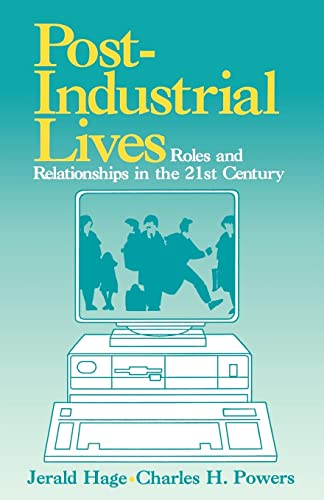Post-Industrial Lives
no information available
The move from an industrial to a post-industrial society has been documented by many, as has the impact of this new order on the macro-level institutions of society - government, the workplace and the economy. But what does post-industrial life mean to the individual and for relationships between people? Hage and Powers examine that question, linking global changes in the work patterns, information flow and knowledge to the practice of everyday life. Their answer is that the complexification of society requires a different kind of person. Creativity, flexibility and emotional astuteness will become the watchwords of the future, personality traits that will enable people to successfully adapt to the ever-changing swirl of workplace, familial, personal and leisure roles. Based on the tenets of social theory, the authors present both a vision of the future and a plan for personal and interpersonal action. ... Read more Read less











